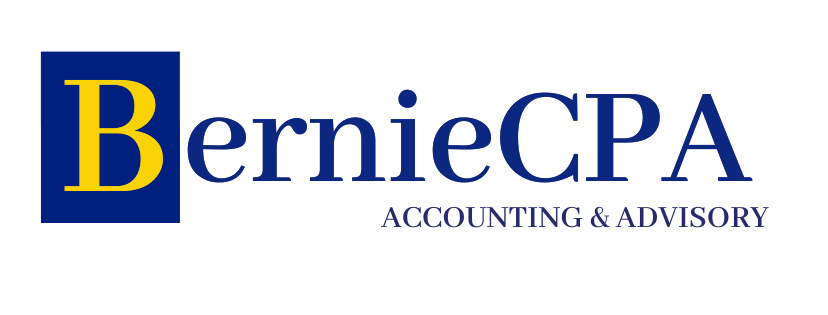Bon Appétit, Business Owners: Navigating the Ins and Outs of Meal Expense Deductions
Meal expense deductions are a valuable tax benefit for businesses, allowing them to deduct the cost of meals as a business expense. This can include meals for employees, clients, and business associates. However, it’s important to understand the rules and limitations surrounding meal expense deductions in order to ensure compliance with tax laws.
Meal expenses are generally deductible if they are considered ordinary and necessary for the conduct of business. This means that the meal must be directly related to the active conduct of business, such as a meal with a client to discuss a potential business deal. Additionally, the meal must be incurred while the taxpayer is present, and it cannot be lavish or extravagant. Understanding these criteria is essential for businesses to accurately claim meal expense deductions on their tax returns.
Qualifying for Meal Expense Deductions
In order to qualify for meal expense deductions, the expenses must meet certain criteria set forth by the Internal Revenue Service (IRS). The meal must be directly related to the active conduct of business, meaning that there must be a clear business purpose for the meal. This could include meals with clients, employees, or business associates where business is discussed or conducted.
Additionally, the meal must be incurred while the taxpayer is present, meaning that the taxpayer or an employee of the taxpayer must be present at the meal. The meal cannot be lavish or extravagant, and it must be considered ordinary and necessary for the conduct of business. Understanding these qualifications is crucial for businesses to ensure that they are eligible to claim meal expense deductions on their tax returns.
Documentation and Record-Keeping for Meal Expenses
Proper documentation and record-keeping are essential when it comes to claiming meal expense deductions. The IRS requires taxpayers to keep detailed records of all meal expenses, including the date, time, place, and business purpose of the meal. Additionally, taxpayers must keep receipts or other documentation that shows the amount spent on the meal and the individuals present at the meal.
It’s important for businesses to establish a system for tracking and recording meal expenses in order to ensure compliance with IRS regulations. This can include using accounting software to track expenses, keeping a log of all business meals, and retaining receipts and other documentation. By maintaining accurate records of meal expenses, businesses can substantiate their deductions in the event of an IRS audit.
Limitations and Restrictions on Meal Expense Deductions
While meal expenses are generally deductible, there are limitations and restrictions that businesses must be aware of when claiming these deductions. The IRS imposes a 50% limit on meal expense deductions, meaning that businesses can only deduct 50% of the cost of qualifying meals as a business expense. This limitation applies to meals provided to employees as well as meals provided to clients and business associates.
Additionally, there are restrictions on certain types of meals, such as entertainment meals. The Tax Cuts and Jobs Act of 2017 eliminated the deduction for entertainment expenses, including meals provided during entertainment activities. Understanding these limitations and restrictions is crucial for businesses to accurately claim meal expense deductions on their tax returns.
Meal Expenses for Business Travel
Meal expenses incurred during business travel are generally deductible as a business expense. This can include meals while traveling away from home on business, such as meals at restaurants or hotels. In order to qualify for this deduction, the travel must be away from the taxpayer’s tax home and must be overnight or long enough that sleep or rest is required.
Businesses must keep detailed records of all meal expenses incurred during business travel in order to substantiate their deductions. This can include keeping receipts for meals, documenting the business purpose of the travel, and recording the dates and locations of all meals. By maintaining accurate records, businesses can ensure that they are eligible to claim meal expense deductions for business travel on their tax returns.
Meal Expenses for Client Entertainment
Meal expenses incurred during client entertainment activities were historically deductible as a business expense. However, the Tax Cuts and Jobs Act of 2017 eliminated the deduction for entertainment expenses, including meals provided during entertainment activities. This means that businesses can no longer deduct the cost of meals provided during entertainment events, such as sporting events or concerts.
While the deduction for entertainment meals has been eliminated, businesses can still deduct 50% of the cost of qualifying meals that are directly related to the active conduct of business. This can include meals with clients where business is discussed or conducted. It’s important for businesses to carefully track and document all meal expenses incurred during client entertainment activities in order to ensure compliance with IRS regulations.
Changes to Meal Expense Deductions in Tax Laws
The Tax Cuts and Jobs Act of 2017 brought significant changes to meal expense deductions in tax laws. One of the most notable changes was the elimination of the deduction for entertainment expenses, including meals provided during entertainment activities. This means that businesses can no longer deduct the cost of meals provided during entertainment events as a business expense.
Additionally, the act made changes to the deduction for employee meals provided by an employer. Previously, these meals were 100% deductible as a business expense, but under the new law, they are subject to the 50% limit on meal expense deductions. Understanding these changes is essential for businesses to accurately claim meal expense deductions on their tax returns and ensure compliance with current tax laws.
In conclusion, understanding meal expense deductions is crucial for businesses to ensure compliance with tax laws and maximize their tax benefits. By understanding the qualifications, documentation requirements, limitations, and changes to meal expense deductions in tax laws, businesses can accurately claim these deductions on their tax returns. Proper record-keeping and documentation are essential for substantiating meal expense deductions in the event of an IRS audit. By staying informed about current tax laws and regulations surrounding meal expense deductions, businesses can take full advantage of this valuable tax benefit while avoiding potential penalties or audits from the IRS.

